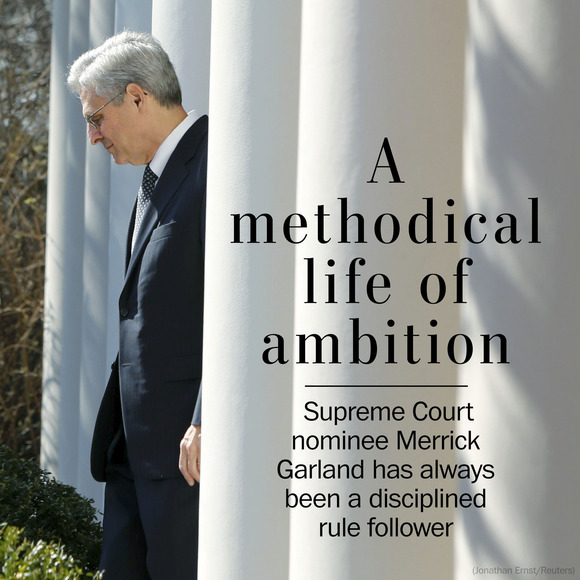By Mike McClary
 The president of the United States has performed his Constitutional duty, under Article II, Section 2, to nominate a replacement, Judge Merrick Garland, to succeed the late Justice Antonin Scalia. Now, it is the duty of the president to appoint Judge Merrick to the Supreme Court, “by and with the Advice and Consent of the Senate.”
The president of the United States has performed his Constitutional duty, under Article II, Section 2, to nominate a replacement, Judge Merrick Garland, to succeed the late Justice Antonin Scalia. Now, it is the duty of the president to appoint Judge Merrick to the Supreme Court, “by and with the Advice and Consent of the Senate.”
Senators don’t have to approve the nomination, but they shouldn’t draw salaries for doing nothing. The Majority Leader, Senator Do-Nothing Mitch McConnell, only “speaks” for 54 Republicans, not for every senator, but so far, he has refused to allow the Senate to act.
The cases that come before the Supreme Court are as wide and varied as our people and say volumes about our ideals over the past two centuries. March 1857’s Dred Scott decision ruled that Americans of African descent, whether free or slave, were not American citizens and could not sue in federal court. The Court also ruled that Congress lacked power to ban slavery in the U.S. territories. Finally, the Court declared that the rights of slave owners were constitutionally protected by the Fifth Amendment because slaves were categorized as property.
It was not a stellar moment in American history.
At the opposite end of the spectrum, almost 100 years later in Brown v. the Board of Education, the Supreme Court handed down a landmark unanimous decision declaring state laws establishing separate public schools for black and white students to be unconstitutional. The court stated that “separate educational facilities are inherently unequal,” and as a result de jure racial segregation was ruled a violation of the Equal Protection Clause of the 14th Amendment to the Constitution.
Cases that come to the Supreme Court often have high stakes and are not without controversy: Roe vs. Wade, marriage equality, the Affordable Care Act, personal ownership of handguns, eminent domain, to name just a few instances. We all know that various groups feel passionately about these important issues. There are a number of very important and controversial cases now before the court that are of particular interest to Virginians: Republican gerrymandering of Congressional districts, and “prison or not” for former Governor Bob McDonnell, to name just two. If the court splits four-to-four, the lower court rulings will stand – McDonnell will go to jail and we’ll all be voting in redrawn districts in November. Apparently, throwing the former governor under the bus is a small price to pay for blocking the president’s nomination.
The current controversy, ignited unnecessarily by McConnell before Scalia’s body was even cold, seeks to preserve the previous conservative advantage on the court by denying the president the opportunity to appoint his own nominee, with the hope that a conservative will win the presidency in November and nominate somebody like Scalia to fill his vacancy. The first part of McConnell’s strategy, to deter through political bombast the president from even making a nomination, has already failed.
Despite his continued posturing, there appear to be cracks in the wall of opposition (the second part of McConnell’s strategy) to even giving the nominee a hearing, as several Republican Senators have indicated a willingness to talk with Judge Garland.
Everyone agrees that Garland is eminently qualified, though the Freedom Caucus would rather have a nominee to the right of Attila the Hun, and progressive Democrats would rather have a nominee far to the left of Teddy Kennedy. Incredibly, McConnell recently expressed his opinion that any nominee would have to win the approval of the National Rifle Association. Really? Really?
Bloomberg Politics reports that the Republican blockade “isn’t about Garland, or even really their newly invented talking point that the public should get a chance to weigh in in November. It’s about the balance of power at the court. They don’t want to let it swing from a majority of Republican-nominated justices to a majority of Democrat-nominated justices for the first time in decades if they can do anything to stop it.
In fact, the voters have already spoken, by reelecting the president to a second term that does not end until Jan. 20, 2017. McConnell’s desire to reverse the 2012 election or shorten the president’s term is pure House of Cards political fantasy. He is trying to gamble with America’s future. Several polls have shown that the American people do not want the Supreme Court to remain toothless for the next several months.
McConnell’s strategy may backfire. If he continues his practice of obnoxious obstructionism, strident partisanship, and mindlessly blocking every single thing the President proposes, including this nomination, it could likely result in an electorate that grows tired of the Ship of State not only being dead in the water, but in danger of sinking during the next eight months. It would serve the Republican Party right to lose, not only the presidency, but their majorities in the Senate and House of Representatives. Enough, indeed, is enough.
